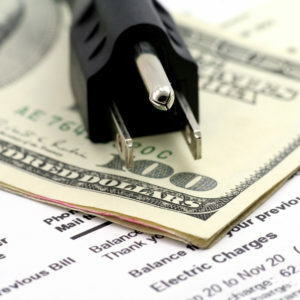Pennsylvanians prefer affordable energy to climate alarmism and fear energy prices will keep rising.
A new poll from the Commonwealth Foundation released Tuesday showed voters rejecting the Regional Greenhouse Gas Initiative (RGGI) and likely opposing Gov. Shapiro’s Pennsylvania Climate Emissions Reduction Act.
Perhaps more important is that 81 percent of the 800 voters surveyed expressed concern over the future availability of affordable energy. That includes 79 percent of Democrats and 86 percent of Republicans.
And, 79 percent said they had fears about the future availability of affordable energy in Pennsylvania.
“Pennsylvania voters have made it clear they prioritize energy affordability and reliability over climate alarmism,” said André Béliveau, Commonwealth Foundation’s senior manager of energy policy. “Likewise, Pennsylvanians overwhelmingly support economic freedom and oppose excessive government regulations and red tape.”
Keystone State ratepayers are also feeling the inflation effects of higher energy costs. The poll found 80 percent agreed they paid more for utility bills, including 87 percent of Republicans and 76 percent of independents. Seventy-five percent of Democrats added that their energy bills went up.
Stats from Pennsylvania’s Independent Fiscal Office (IFO) said energy prices shot up 30 percent last year compared to 2018. Most of the hikes happened near the end of 2021 and the beginning of 2022, when the U.S. saw inflation spike to 9.1 percent. While prices are rising more slowly, they continue to climb — stubbornly and at a faster rate than economists expected.
Respondents said they were taking simple steps to save on energy costs. Sixty-four percent said they were turning off lights, appliances, and electronics when not in use, and 54 percent lowered the thermostat during the winter. Another 34 percent said they’d reduce the use of air conditioning during the summer.
The poll found that President Joe Biden’s dream of an all-electric power grid will have to wait. Just nine percent of respondents said they’d buy an electric vehicle, and only eight percent wanted solar panels on their homes. A mere three percent said they were ready to pay more for green energy.
At the same time, Pennsylvanians overwhelmingly support using natural gas. Nearly 70 percent said the state government should embrace natural gas and not hinder it with regulations.
The IFO said earlier this month that the state’s carbon emissions dropped more than 10 percent last year, the largest yearly decline since 1990, and by almost nine million metric tons since 2018. This despite natural gas production growth of 21 million megawatt hours. It is believed to be due to the retirement of coal-fired plants.
“Pennsylvanians are very robust in supporting in supporting the expansion of energy production,” said Elizabeth Stelle, Commonwealth Foundation’s Director of Policy Analysis. “We want whatever sources are going to be reliable and affordable. But they’re clearly not in favor of some of the more heavy-handed mandates that restrict types of power.”
This is in line with Pennsylvania’s feelings about RGGI. A 54 percent majority of voters, including 39 percent of Democrats and 60 percent of independents, oppose joining the multistate cap-and-trade compact.
That may spell doom for Shapiro’s planned PACER program, which is based on a similar carbon credit model, just within the state’s borders.
“Pennsylvanians are very much concerned about this carbon tax proposal,” said Stelle.
Béliveau said voters do not have to stomach to pay more for energy to combat climate change. “Energy affordability is going to be a top priority for voters in Pennsylvania leading up to the elections in November.
“That’s one of the biggest takeaways.”
And who do Pennsylvanians believe will do the most to lower their energy bills, Donald Trump or Joe Biden? It was a statistical tie.
A modest 37 percent said Trump would do the best job on energy, while 34 percent picked Biden.

